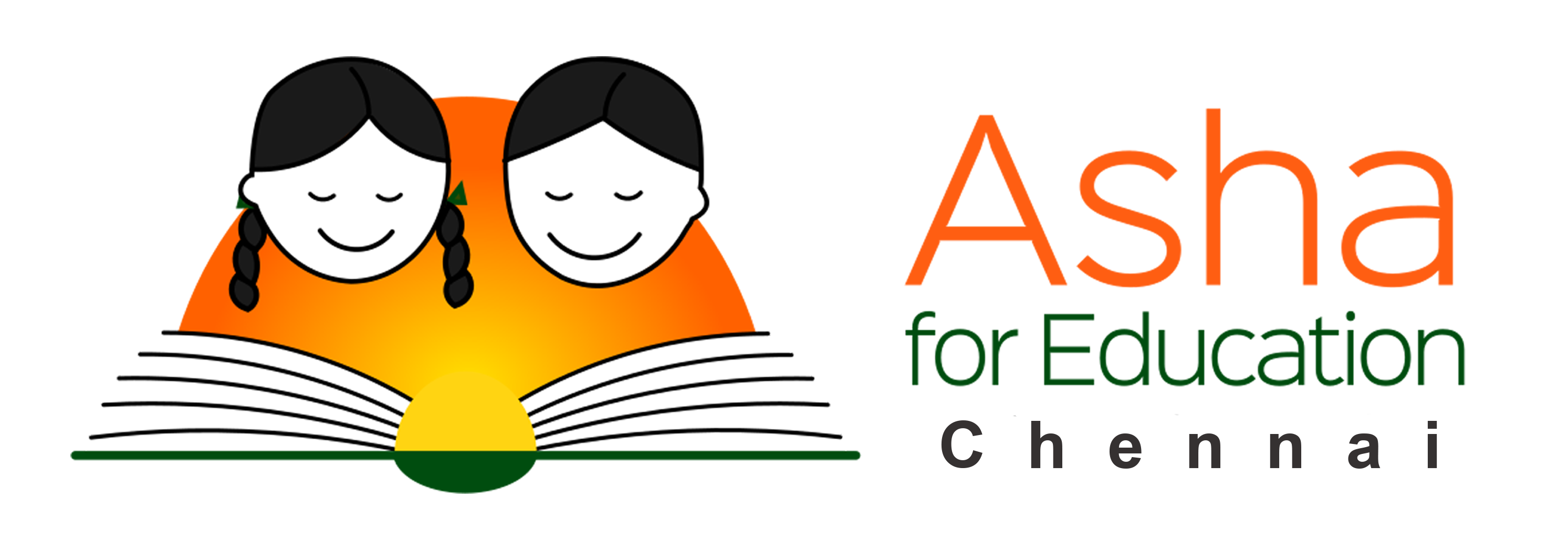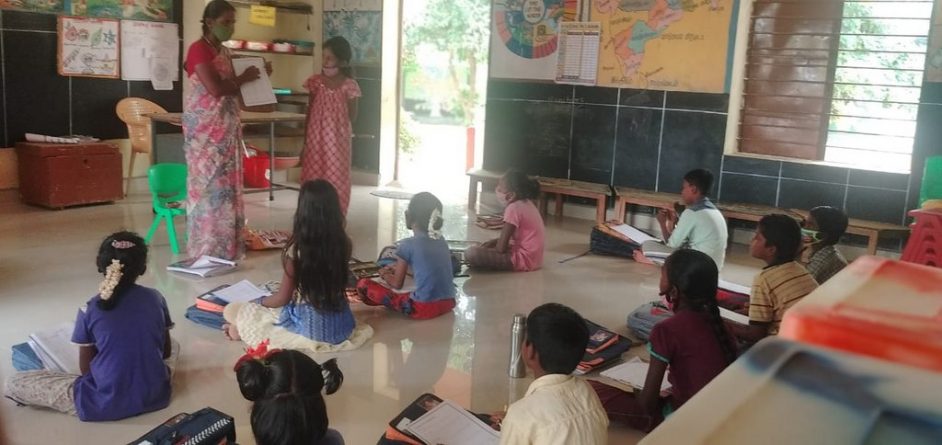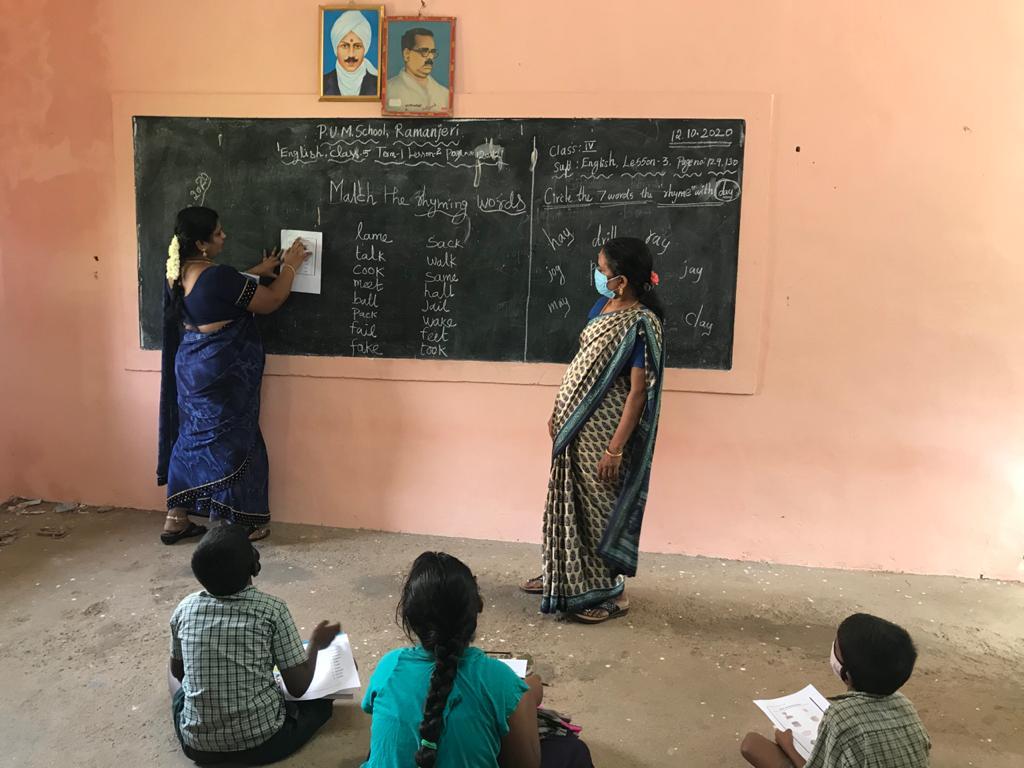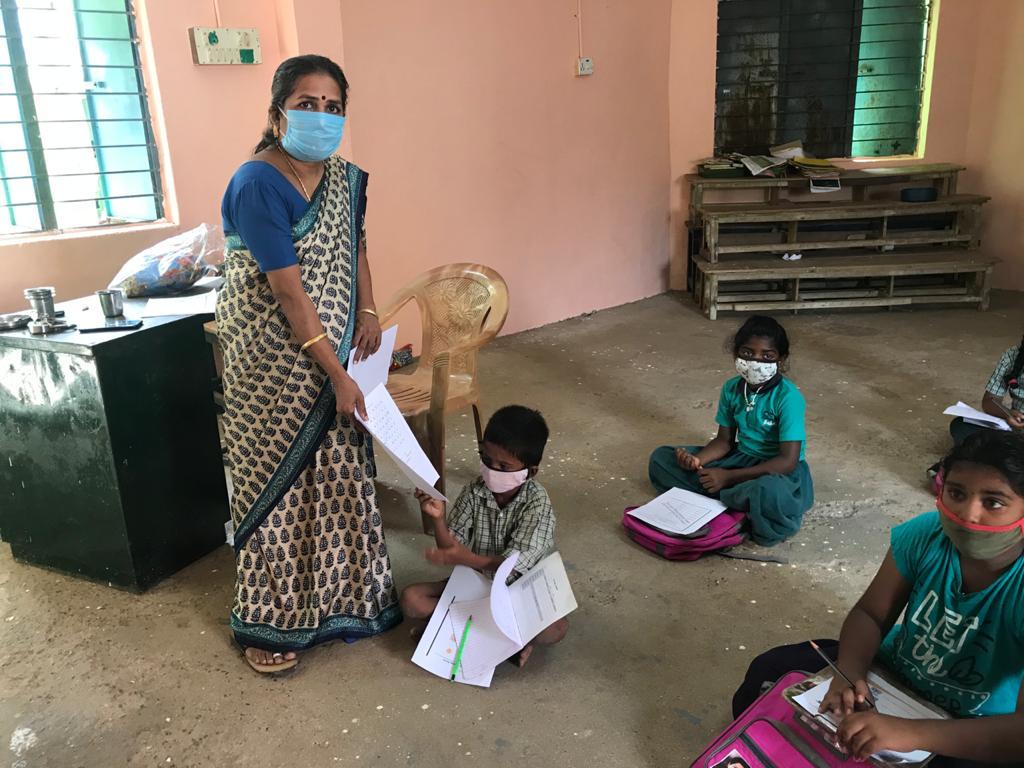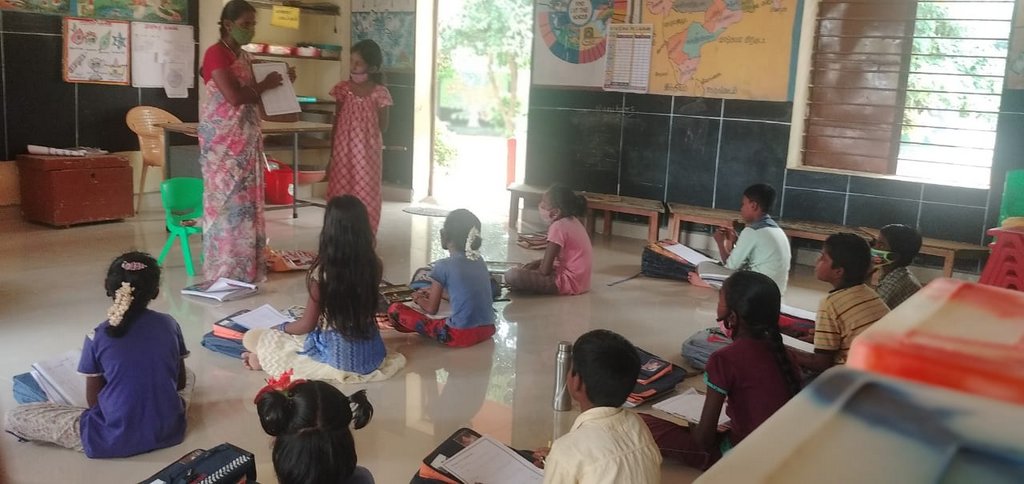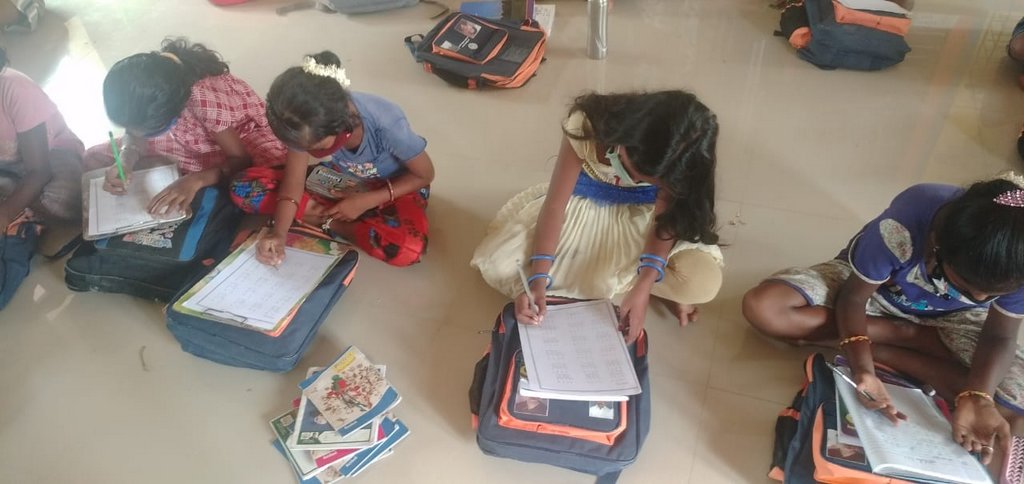With several restrictions placed on government schools, they are not able to open to children. Further teaching through video conference is not a possibility in these schools. Asha Chennai has created contents for continuing the education under these restrictions.
Hybrid Curriculum – Oct 2020
This is a report of the Hybrid curriculum work done by Asha Chennai. It is written by Rajaram and Radhika.
Sustaining Education during Covid Times (Hybrid Curriculum)
Asha is taking various steps to try and restore education that has been severely disrupted. As a separate effort we are running mini-schools in villages where our teachers reside. However, we are only able to cover less than 1000 students through these. Out of these 1000 students only about 500 or 600 will be children going to Asha supported school. On the other hand, we were supporting some 6000+ children spread across 100 schools. Most of the rest of the children we were supporting are not getting much in terms of education. The government had asked the teachers to come back to the school in small numbers but had not allowed the schools to be open to children. While we felt children should have been allowed in some kind of shift system, we had to work within the restrictions imposed by the government.
Education on some video conferencing platform like Google Meet or Zoom is happening for students going to private schools. But here too the actual education that was happening was questionable. For children from poorer sections,this was a non-starter for many reasons,
- They do not have laptops. Even smartphones, they have one in the household. That will typically be with the father and he would be taking it to the work place with him.
- Even network connection is not of very good quality in remote areas which creates problems.
- Without educational inputs from parents (due to their own lack of education), this model is very difficult.
We were considering alternatives to education through video conferences given the circumstances. Some initial trial with Whatsapp didn’t yield very good results either. While the children were more likely to have Smartphones, getting their attention, getting the access to the device at a set time during the day etc. were all proving to be problems. We circled in on the following things.
- Distribute worksheets to the students in person either in the school if that is possible or at their homes. Give them the worksheets for the whole week during that time.
- If meeting at school, correct their previous worksheets and discuss their mistakes with them. Provide them an opportunity to ask doubts. Teach them the next week’s topics to the extent possible.
- Form a Whatsapp group of the children. Send them materials like videos on online games to do every day.
- Align these to what is happening in the Kalvi TV channel.
- Talk to the children and the parents of the children on a regular basis to ensure that the children are continuing to spend the time on education.
Towards this end Asha had created a set of modules for each lesson for each class/subject from 3rd to 8th std. There will be about 4 to 6 modules for each lesson corresponding to the number of weeks in which a lesson is typically covered. These modules will contain the following.
- Reference to the pages in the textbook for this module.
- Link to one or more videos to watch for this module.
- Link to a game or something fun related to this module if possible.
- One or more worksheets for this module. This can also be separately printed out. If possible we will also provide easy, medium and difficult worksheets so that the teacher can assign an appropriate one to the student.
Schools that are participating:
Overall 38 schools are doing this method of education for their students. They are as follows,
Thiruvallur – Sangamam – 32 schools
Chennai and Kancheepuram Dist — Poorna Vidya – 4 schools
Thoothukudi Dist — Pearl – 2 schools.
Our main aim is to focus on middle school students. We have created the curriculum for classes 3 to 8 and we are sharing this with the schools.
How this is working in practice
In middle schools like Ramanjeri, Kunnavalam, Koppampatti and Odappai our Asha teachers are a part of the Whatsapp groups of their schools. They will post our curriculum in the groups and will explain whenever the students have doubts. Here are a couple of photos from Ramanjeri.
In some schools like Ramanjeri and Ammambakkam both Government teachers and Asha teachers share curriculum in their groups. They also ask the kids to come to schools if they have any doubts. Teachers clarify the student’s doubts directly.
In schools like Arkampatu and Kannigaiper, Asha teachers were posting curriculum in schools and visiting their students in school premises, sometimes going to student’s home directly to see the work done by the students. We are planning to have such activities in other schools also. Here are a couple of photos from Arkampattu.
In other primary schools our Asha teachers are sharing curriculum in their school Whatsapp groups. Students will ask their doubts in the Whatsapp groups and teachers will clarify it in Whatsapp itself.
In Sangamam project, 14 schools have Whatsapp groups with the students. Most of the Asha supported schools are in remote area. Many kids’ parents also don’t have a smartphone. So we have planned to provide worksheets we are having in our hybrid curriculum to those remote schools. Nowadays government teachers are coming to schools daily. They are giving these worksheets to the kids and clarifying their doubts. This type of distributing worksheets to kids are going on in 18 schools. Important point to note that these schools belongs to remote area. We are planning to increase this number of schools.
In Poorna vidya schools, our teachers are sharing our curriculum in their school Whatsapp groups.
Some teachers are handling mini schools, and they are doing education via this Hybrid curriculum as well. This enables us to reach children in Asha supported schools that we cannot reach through the mini-schools.
Response from Students and Teachers :
The students are not responsive in the Whatsapp groups in some of the schools. Because phones will be with their parents most of the time. Schools like Kannigaiper, Ramanjeri, Kunnavalam, Kuppathupalayam and Ammambakkam students are giving responses quickly and they are interested in learning through Whatsapp. This was due to their school HM’s interest. Teachers said that our curriculum was easy to use. It was useful for them. They want more curriculum like this for term 2.
Future plans :
We are requesting some school HM’s to start a Whatsapp group for their students. They said they will do it by this upcoming week. But we have to send our teacher once a week for clarification of doubts. We have to plan it accordingly since many teachers are involved in mini schools too.
Conclusion:
It is a very hard process, only when the student has interest to learn, this method will succeeded. Even if they have interest, the kids will have the phone only for a short time as their parents have the phones. So, the parents should also be motivated to make this work. The teachers are definitely putting good effort over this. We hope for the best.
